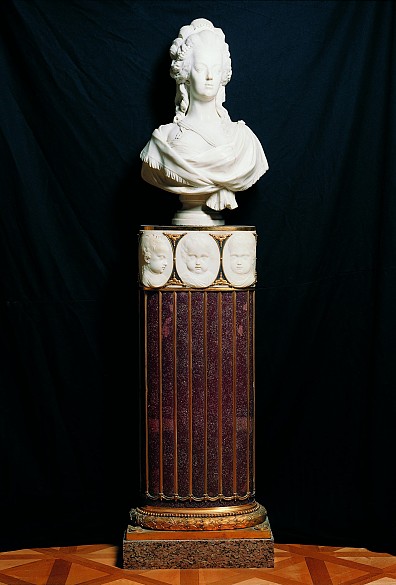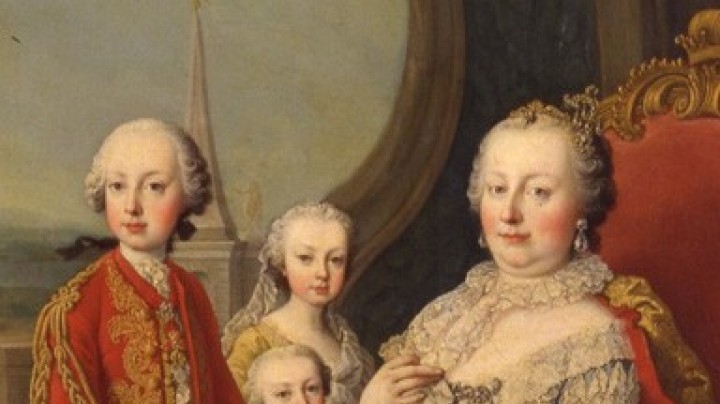‘If they have no bread, let them eat cake’!
Often attributed to Marie Antoinette, this phrase was in fact never uttered by her. However, it has come to symbolize the obliviousness of Marie Antoinette and the aristocratic elite of the ancien régime in general towards the social problems of the time.
Now that she had produced offspring Marie Antoinette was freed of a heavy burden. She began to escape the sterile ceremony of court life, where she was not allowed the least privacy. Her private retreat was the Petit Trianon, an elegant little château in the park at Versailles, where she surrounded herself with an exclusive company of confidantes. The traditional elites at court and even the king himself were only allowed to enter by express permission of the queen. The queen’s eccentric lifestyle came to be symbolized by the hameau de la reine, an artificially built hamlet of peasants’ cottages. Marie Antoinette created a bucolic fantasy world in which an artificial village idyll was to provide relief from the stiff formality of court life. This quest for a life lived closer to nature was in keeping with contemporary currents that marked the beginning of the Romantic Age.
It was at this time that Marie Antoinette made the acquaintance of the Swedish aristocrat Axel von Fersen. The exact nature of their relationship has still not been clarified but the possibility of a love affair cannot be excluded.
By absenting herself from court she affronted influential circles in court society. She was accused of neglecting her duties as queen, wife and mother, accusations which were then broadcast further afield by her numerous enemies. This increasingly open criticism of the queen was give additional fuel by the tense economic situation, as France was donating huge sums in support of the American War of Independence against Britain. However, the people saw the extravagance of the queen as the reason for their plight. The derisive nickname of ‘Madame Deficit’ for Marie Antoinette began to make the rounds. Hatred of the queen intensified as a result of the flood of lampoons and satirical handbills full of mostly obscene calumnies directed against the frivolous lifestyle of the extravagant company at the Petit Trianon. The queen was accused of sexual excesses, while the king was portrayed as incapable.
Marie Antoinette ignored the growing hatred and failed to realize the true import of the polemical attacks on her person. Things reached their lowest point when the so-called Necklace Affair became public. This involved an extremely valuable diamond necklace that disappeared without her knowledge after her name had been forged on certain documents. Although the queen’s innocence was proved, the affair discredited the monarchy and led to a huge loss of popularity. The fact that she could even have been believed capable of having had a part in the affair shows how low Marie Antoinette’s reputation had sunk.
Only now did she realize the seriousness of the situation, but attempts to rebut the criticism were in vain. The political and economic situation of the kingdom was approaching a critical state and Louis was hopelessly out of his depth. Marie Antoinette now became active, taking part in the sessions of the royal council and modelling herself on Maria Theresa as ‘mother of her country’. However, she lacked any political instinct. Inexperienced and naive, she exacerbated the situation with her interventions.
In 1789 pressure for reform led to the convocation of the Estates-General: the representatives of the nobility, Church and the Third Estate (the urban, property-owning bourgeoisie) from all parts of the kingdom assembled in a kind of parliament. Demands for a constitution that would curtail the absolute power of the monarch became ever louder. While Louis reacted with indecision, Marie Antoinette took the initiative. She urged a military solution; troops loyal to the king were to dissolve the assembly of the Estates. This active intervention made her the mouthpiece of royal power. Having been hitherto vilified solely as an immoral creature of luxury, Marie Antoinette now became a general focus of loathing for the revolutionary forces, the embodiment of a hated regime.













